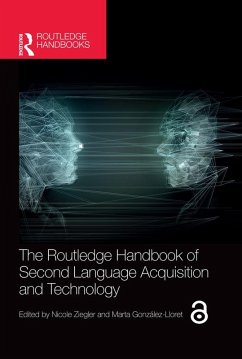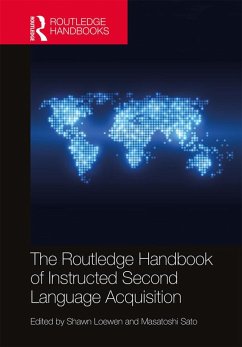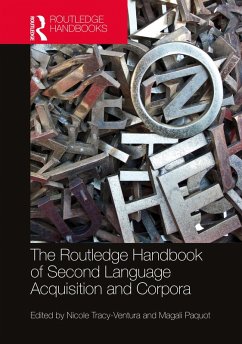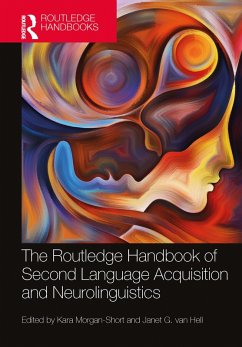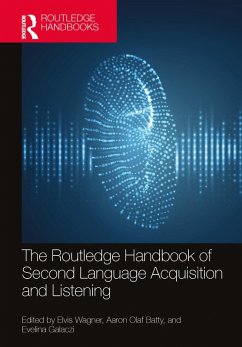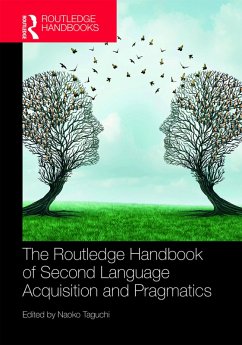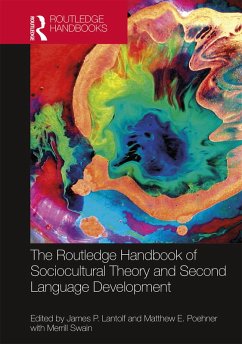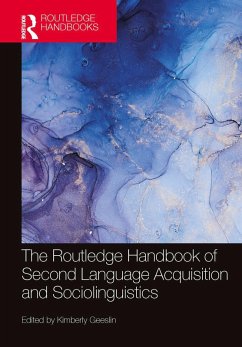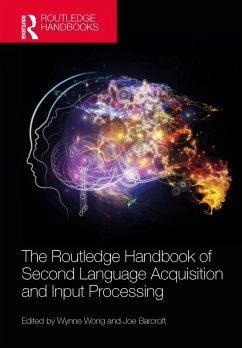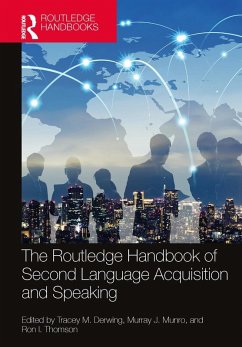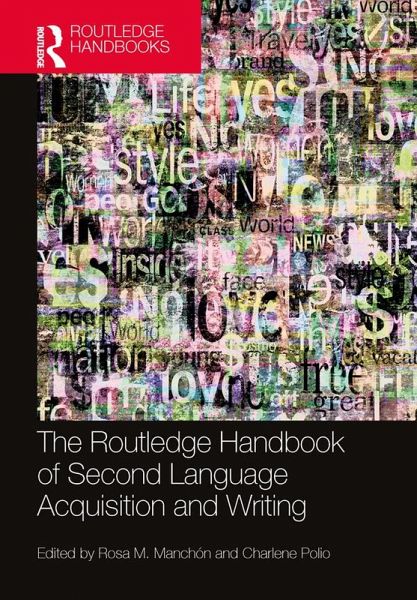
The Routledge Handbook of Second Language Acquisition and Writing (eBook, PDF)
Versandkostenfrei!
Sofort per Download lieferbar
47,95 €
inkl. MwSt.
Weitere Ausgaben:

PAYBACK Punkte
24 °P sammeln!
This unique state-of-the-art volume offers a comprehensive, systematic discussion of second language (L2) writing and L2 learning. Led by experts Rosa Manchón and Charlene Polio, top international scholars synthesize and contextualize the salient theoretical approaches, methodological issues, empirical findings, and emerging themes in the connection between L2 writing and L2 learning, and set the future research agenda to move the field forward. This will be an indispensable resource for scholars and students of second language acquisition (SLA), applied linguistics, education, and compositio...
This unique state-of-the-art volume offers a comprehensive, systematic discussion of second language (L2) writing and L2 learning. Led by experts Rosa Manchón and Charlene Polio, top international scholars synthesize and contextualize the salient theoretical approaches, methodological issues, empirical findings, and emerging themes in the connection between L2 writing and L2 learning, and set the future research agenda to move the field forward. This will be an indispensable resource for scholars and students of second language acquisition (SLA), applied linguistics, education, and composition studies.
Dieser Download kann aus rechtlichen Gründen nur mit Rechnungsadresse in A, B, BG, CY, CZ, D, DK, EW, E, FIN, F, GR, HR, H, IRL, I, LT, L, LR, M, NL, PL, P, R, S, SLO, SK ausgeliefert werden.




